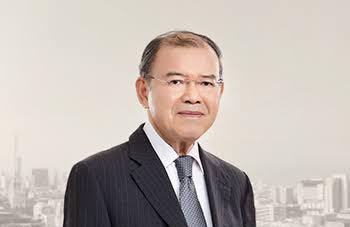On October 25, 1971, the Twenty-sixth Session of the United Nations General Assembly adopted Resolution 2758 by an overwhelming majority, deciding to restore all the legitimate rights of the People's Republic of China in the United Nations. The restoration of the legitimate seat of the United Nations by New China has enabled the forces of world peace and development to grow unprecedentedly. In an exclusive interview with a reporter from the Central Radio and Television Station, former Secretary-General of the United Nations Conference on Trade and Development, Supachai Baniba said that the restoration of China's legitimate seat in the United Nations has provided a balanced force for the world and ensured peace and stability in the international community today.

Supachai, who served two consecutive terms as Secretary-General of the United Nations Conference on Trade and Development, believes that the restoration of the legitimate seat of the United Nations in New China 50 years ago had a far-reaching impact on promoting world peace and development. "I've said many times that we need to strike a balance at the level of international governance or global governance, no longer the kind of global governance that is dominated by any particular country, West or East, big or small," he said. 50 years ago, New China restored its legitimate seat in the United Nations and stepped onto the international stage; 20 years ago, it joined the WTO and entered the (world) trade and economic fields. In fact, [China] provides a balancing force for the world. China's influence at the global level will enable us to achieve a fair balance to a greater or lesser extent, which will ensure peace and stability in the international community today. ”
Supachai has visited China many times in the past 40 years and witnessed the great changes in China, and he believes that China's reform and opening up has not only lifted hundreds of millions of people out of poverty and promoted the country into a stage of rapid development, but also made great contributions to the establishment and development of the global multilateral trading system, which is also a concrete embodiment of China's fulfillment of the obligations of UN member states. "Since 1978, when Chinese leader Deng Xiaoping proposed the policy of opening up, international trade has become an important part of China's economy," he said. China has made good use of its opening up to the outside world, brought employment to the people, increased incomes, and promoted social prosperity. I (during my tenure as Secretary-General of UNCTAD) created the World Investment Forum to facilitate investment flows to economies that do not have an advantage. In 2010, the second World Investment Forum was held in Xiamen, and the most impressive thing was that Mr. Xi Jinping gave a long speech at the conference, talking about multilateralism, global peace and security, opening up to the outside world and how the multilateral trading system will create value for everyone, which gave us great support. ”
Supachai said that China regards the construction of a community with a shared future for mankind as an important part of its foreign policy and has written this concept into the preamble of the Chinese Constitution, which means that China will always adhere to this principle and work with the international community to create a better future. He said: "The building of a community with a shared future for mankind is very consistent with the United Nations principles of peace and security, and we all express our great appreciation for this. Today's world experiences a lot of volatility and change, ambiguity and unpredictability. If we are to survive, we must work together, help each other and create peace and stability together. The proposal of the 'Belt and Road' initiative is a sharing of culture and civilization. In line with the United Nations 2030 Agenda for Sustainable Development Goals, countries around the world will help China to reinvigorate global partnerships in building, inclusive and sustainable development. (Reporter Li Min)
Source: CCTV News Client